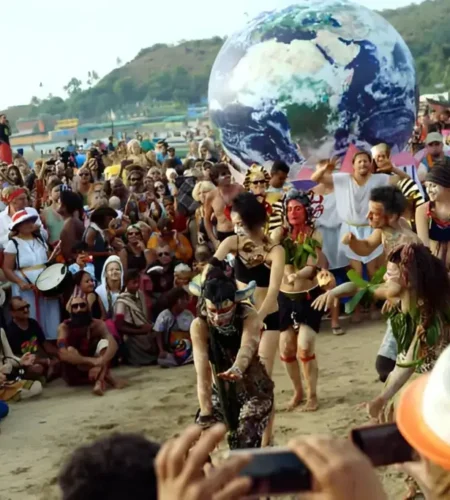Goa, the scenic coastal jewel of India, is renowned worldwide for its pristine beaches, vibrant nightlife, and rich Indo-Portuguese heritage. But beyond its sun-soaked shores and bustling tourist hubs lies a thriving culture of sports and athleticism that beautifully weaves together tradition, community, and modernity. The Goa Games exemplify this spirit — a unique cultural celebration where sports serve as a powerful medium to unite people, celebrate heritage, and promote wellness.
A Fusion of Culture and Athletics
Unlike conventional sports tournaments that focus purely on competition, the Goa Games embody a broader ethos. These events blend athletic contests with Goan cultural festivities, making sports a catalyst for community bonding and cultural expression. The Games are a reflection of Goa’s diverse society — where Konkani traditions merge with modern lifestyles, and coastal customs meet global influences.
From indigenous games played on dusty village grounds to international football matches held in state-of-the-art stadiums, the Goa Games present a mosaic of experiences that highlight the best of the region’s sporting talent and cultural wealth.
Historical Roots of Sporting Culture in Goa
Goa’s relationship with sports dates back centuries, shaped by its geography, colonial history, and social fabric. The Portuguese influence introduced new games and leisure activities, including football and cycling, which quickly found enthusiastic local followings.
Traditional sports like Kabaddi, Kho-Kho, and boat racing have deep roots in Goan villages, where they were integral to community gatherings and festivals. These games were more than entertainment — they reinforced social ties, celebrated seasonal cycles, and honored local customs.
With Goa’s integration into India in 1961, the state experienced a surge in organized sports, encouraged by government initiatives and growing youth interest. Over time, this led to the development of structured leagues, tournaments, and multi-sport events — now collectively known as the Goa Games.
The Spirit of Goa Games: More Than Just Competition
The essence of the Goa Games lies in their ability to celebrate sports as a cultural festival. Every edition is a kaleidoscope of athletic skill, music, dance, and culinary delights. Organizers purposefully blend sport with cultural showcases to ensure participants and spectators alike immerse themselves in Goan heritage.
For example, opening ceremonies often feature traditional Goan folk dances such as Fugdi and Dhalo, performed by local troupes dressed in colorful attire. Food stalls serve authentic Goan dishes like Xacuti, Vindaloo, and Feni, further enriching the sensory experience.
This fusion nurtures an environment where athletes become cultural ambassadors, and spectators gain a deeper appreciation for Goa’s unique identity. The Goa Games thus transcend the boundaries of sport, becoming a platform for cultural preservation and exchange.
Highlighting Indigenous and Modern Sports
One of the Goa Games’ defining features is the equal emphasis on indigenous sports alongside popular modern games, showcasing the state’s athletic diversity.
Indigenous Sports
Traditional games hold a special place in the Goa Games lineup. Kabaddi and Kho-Kho tournaments attract teams from rural areas, encouraging young athletes to engage with their cultural roots. These high-energy, team-based games require strength, strategy, and agility, qualities celebrated throughout Goan communities.
Another spectacular indigenous event is the traditional boat race, held during monsoon festivals in rivers and backwaters. Teams row elaborately decorated boats in rhythmic synchronization, echoing centuries-old maritime traditions and the community’s deep connection with water.
Modern Sports
On the other end of the spectrum, football dominates Goa’s sporting landscape. The state is often called the “Mecca of Indian football,” boasting a passionate fan base, professional clubs like FC Goa, and a growing infrastructure that hosts national and international tournaments.
Other contemporary sports such as cricket, beach volleyball, swimming, and water sports have also found enthusiastic followings. The Goa Games feature competitions in these sports, providing opportunities for athletes to showcase their skills and for spectators to enjoy high-level entertainment.
Goa Games as a Tool for Youth Empowerment
Beyond celebration and competition, the Goa Games serve as a vital platform for youth engagement and empowerment. The state government and local organizations use the event to identify and nurture young talent, offering scholarships, coaching camps, and exposure to national sporting bodies.
This focus on youth development aligns with Goa’s broader vision of promoting healthy lifestyles and social inclusion. By integrating traditional and modern sports, the Goa Games encourage young people to explore their heritage while embracing new opportunities for personal growth.
Moreover, the Games emphasize gender inclusivity, increasingly featuring women’s competitions and highlighting female athletes who break stereotypes and inspire the next generation.
Economic and Tourism Impact
The Goa Games have grown into a significant economic driver for the state. The influx of athletes, officials, and tourists during these events boosts local businesses such as hotels, restaurants, transport services, and handicraft markets.
Additionally, the Games help extend Goa’s tourism season beyond the traditional winter months by organizing competitions and festivals throughout the year. This diversification supports sustainable tourism growth and spreads economic benefits more evenly across communities.
Sporting events also provide a platform for local artisans and performers, who gain visibility and income by participating in the Games’ cultural components.
Environmental and Social Responsibility
As a state known for its ecological beauty, Goa faces the challenge of balancing event promotion with environmental preservation. The Goa Games organizers increasingly prioritize sustainability by adopting eco-friendly practices such as waste management, use of renewable energy, and awareness campaigns for conservation.
Social responsibility is another cornerstone. The Games foster community participation across different socioeconomic strata, promoting inclusion and unity. Local schools, clubs, and NGOs collaborate to ensure the events reach remote areas and marginalized groups.
The Future of Goa Games
Looking ahead, the Goa Games are poised to become even more influential on regional and national levels. Plans are underway to expand infrastructure, incorporate new sports disciplines such as e-sports, and enhance digital outreach to global audiences.
Efforts to strengthen international partnerships and sponsorships aim to increase the scale and prestige of the Games. The government’s vision includes positioning Goa as a year-round sporting destination, complementing its tourism and cultural offerings.
Moreover, continued emphasis on preserving indigenous games ensures that Goa’s rich cultural heritage remains a living, breathing part of its sporting narrative.
Conclusion
The Goa Games stand as a shining example of how sports can transcend competition to become a vibrant cultural celebration. Rooted in tradition yet embracing modernity, these Games bring together communities, celebrate diversity, and inspire generations.
In Goa, sports are not just about winning trophies—they are a way of life, a bridge between past and present, and a celebration of the human spirit. Whether through a spirited game of kabaddi in a village field or a thrilling football match under stadium lights, the Goa Games remind us that the true victory lies in unity, culture, and shared joy.
For visitors and locals alike, the Goa Games offer an unforgettable experience — where athletic prowess and cultural richness dance hand in hand against the backdrop of one of India’s most enchanting landscapes.
Also read-Dance Puns: Step Up Your Humor Game!


Comments